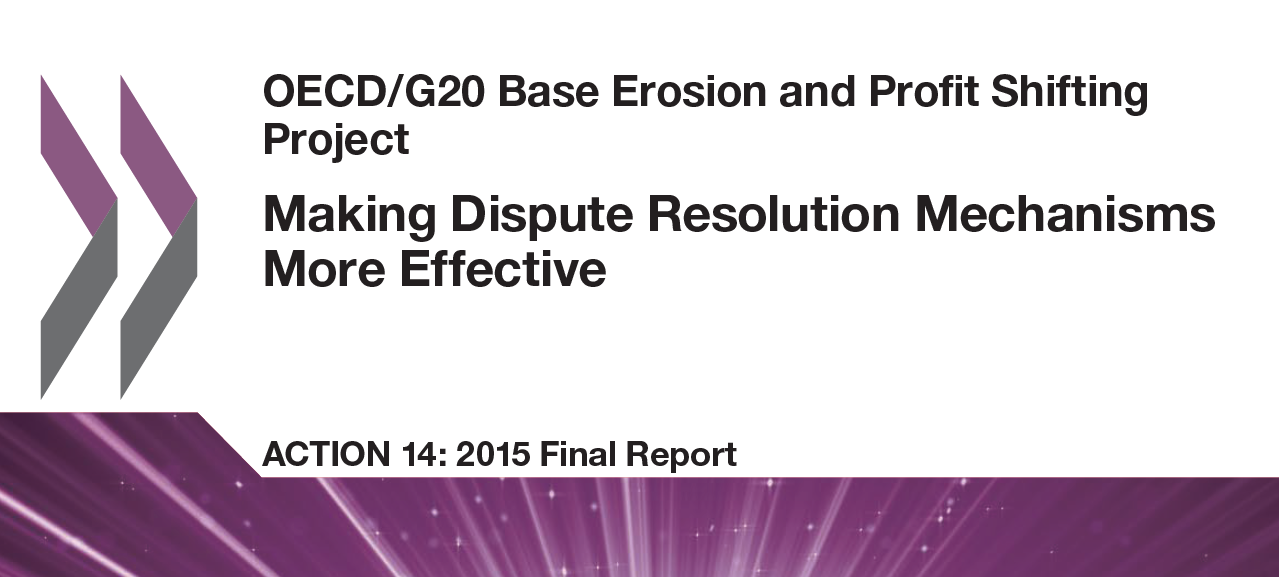BEPS Action 14: Making Dispute Resolution Mechanisms More Effective

Most Base Erosion and Profit Shifting (“BEPS”) actions are directly or indirectly aimed at preventing and combating tax avoidance by taxpayers. Surprisingly, however, there is one action that actively safeguards taxpayers' interests and is even classified as a Minimum Standard (i.e., all BEPS members must participate). Perhaps out of a sense of pity for taxpayers, BEPS introduced this action after rolling out numerous anti-tax avoidance measures, recognizing that these policies might create unnecessary uncertainty for compliant taxpayers and potentially lead to double taxation. This is Action 14: Making Dispute Resolution Mechanisms More Effective.
Don’t get the wrong idea—BEPS is not offering taxpayers a legitimate path to tax avoidance. Instead, it ensures that when disputes arise between tax authorities and taxpayers over bilateral tax treaties, there is an efficient mechanism to protect taxpayers’ interests. Multinational companies involved in international taxation should thoroughly understand Action 14 as an additional tool to counter unreasonable demands from foreign tax authorities. However, it is important to note that Action 14 is limited to disputes involving bilateral tax treaties. If the dispute is only limited to local tax laws, Action 14 cannot provide any assistance.
I. Mutual Agreement Procedure and Its Challenges
Before the implementation of BEPS Action 14, when companies encountered disputes involving bilateral tax treaties abroad, they could appeal to local tax authorities and courts. Alternatively, they could apply for the Mutual Agreement Procedure (“MAP”) under the treaty, allowing the tax authorities of the two jurisdictions to negotiate and resolve the dispute within the framework of the tax treaty. Since MAP involves the tax authority of another country, it is relatively fair compared to using local dispute resolution mechanisms, especially in disputes involving developing countries.
Although MAP seems promising, its practical effectiveness has been less than ideal, with efficiency being a major issue. The ineffectiveness stems from the fact that taxpayers often cannot initiate MAP procedures. The inefficiency is evident in the lengthy resolution times, which can stretch for several years.

